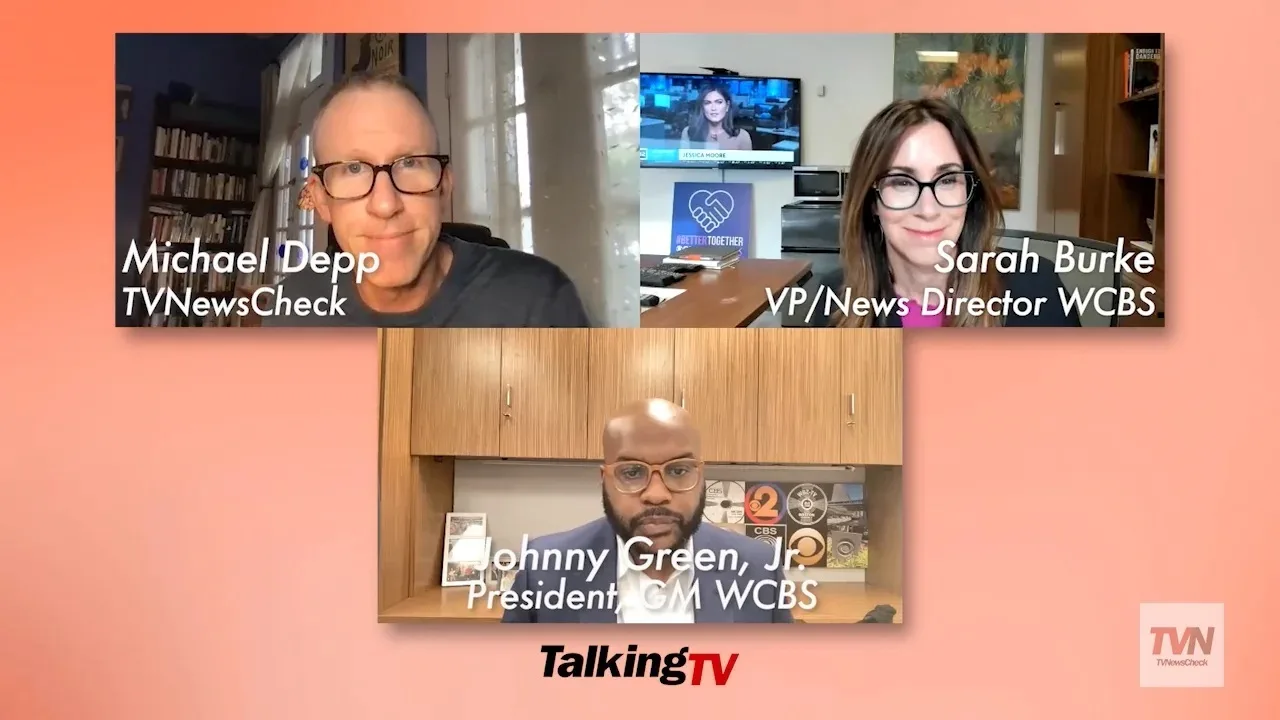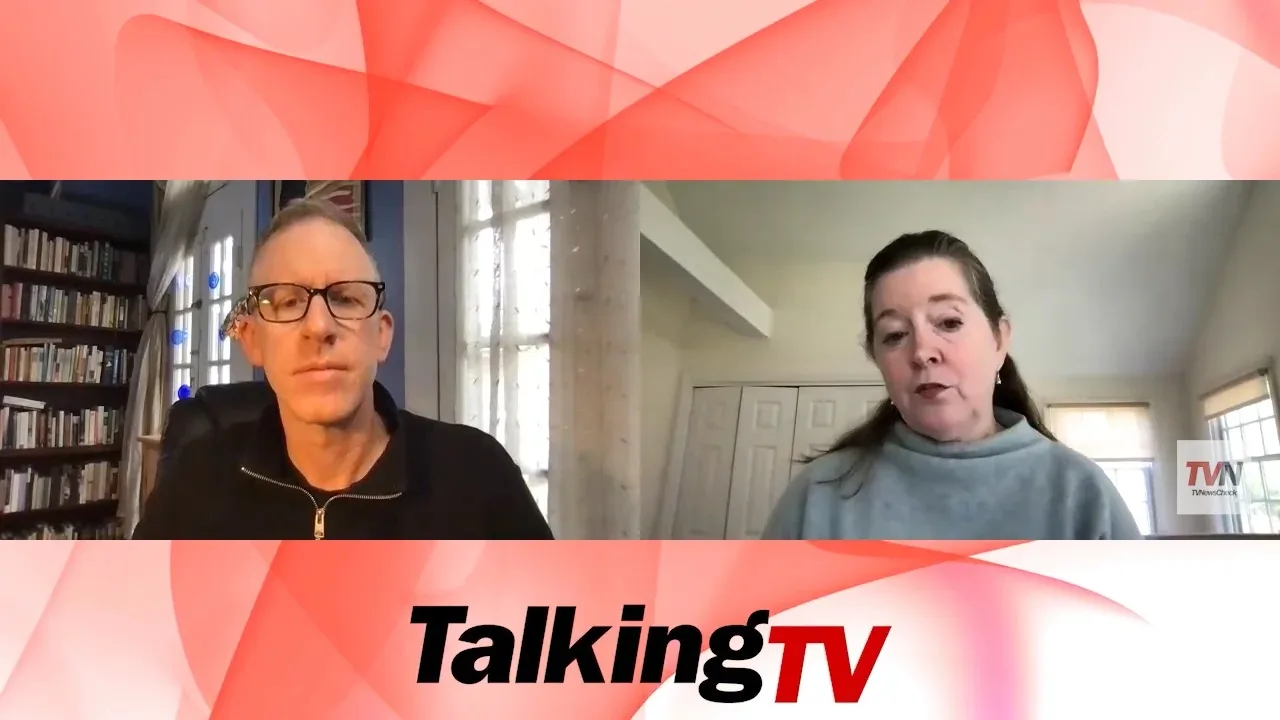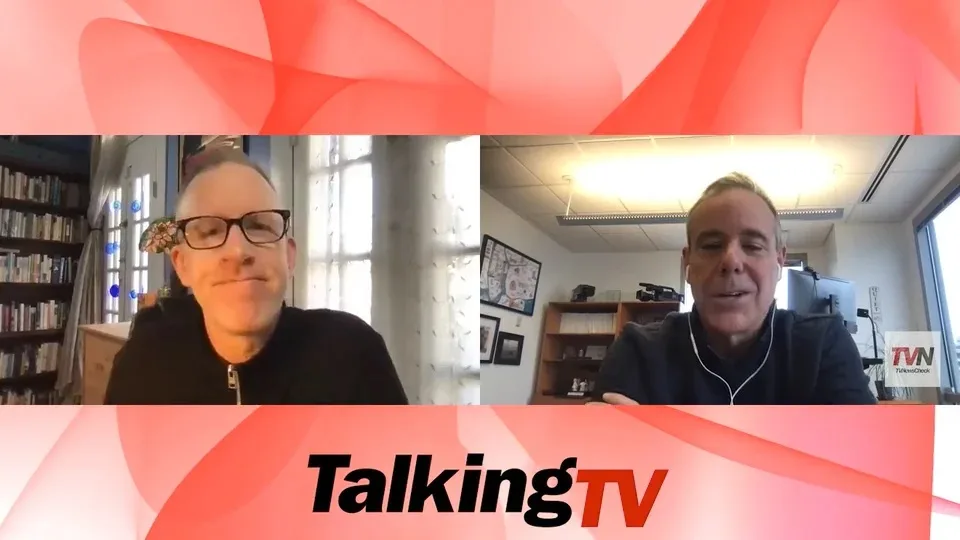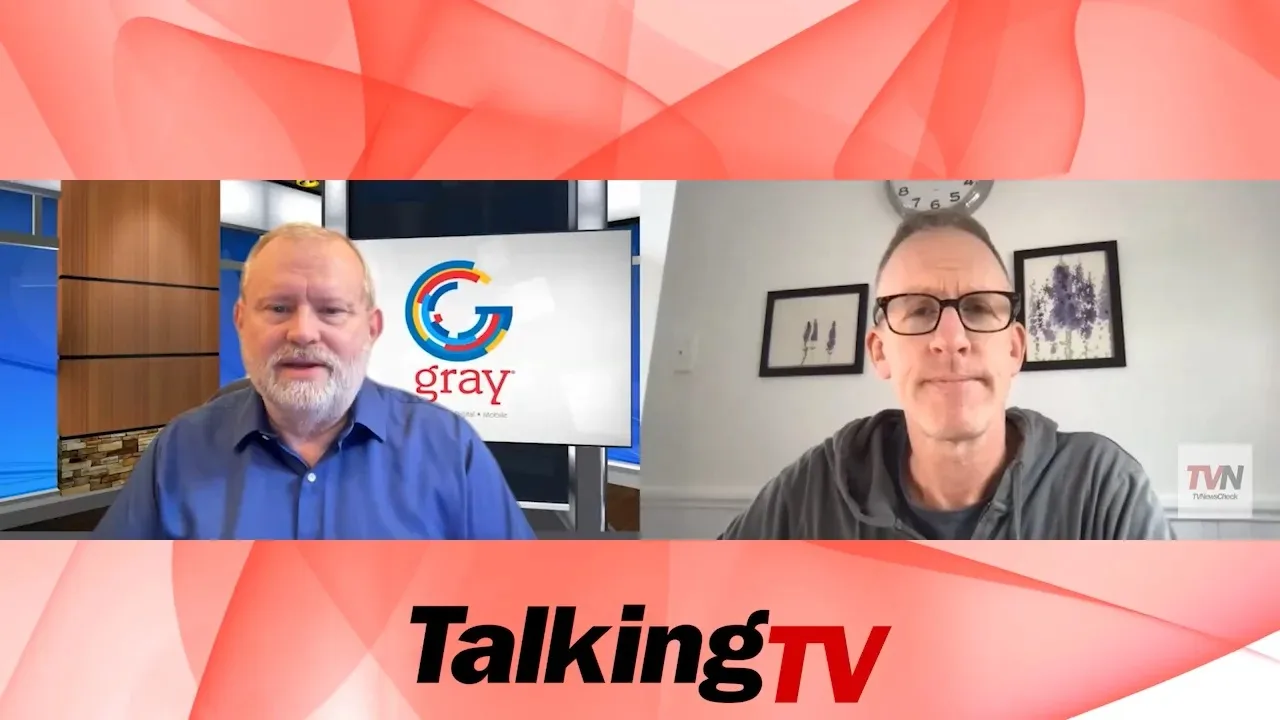TV Everywhere: Elsewhere Or Nowhere?
A growing number of network executives have been moaning about the disparate iterations of TV Everywhere. Every network seems to have a different way to handle it. Frustration abounds, but concern should ramp up regarding the lackluster efforts to provide simplified TV Everywhere access for consumers. TV networks and producers need to figure this out — before someone else does.
Innovation Needed To Keep Journalism Alive
Stephan Weichert, professor at Macromedia University in Hamburg, and international media consultant Peter Littger on how journalism needs alternative funding models and more innovation to stay alive: “It is more important than ever to develop excellent, new and distinguishable forms of journalism, and at the same time, to add value.”
Louisville TV News Focuses On Crime
 Is Louisville more or less safe than it used to be? If you watch local television news, you’re more likely to think that Louisville is less safe. This is partially because the local TV outlets— WAVE, WHAS, WLKY, and WDRB — spend an extraordinary amount of time covering crime stories despite the preponderance of other, more newsworthy topics.
Is Louisville more or less safe than it used to be? If you watch local television news, you’re more likely to think that Louisville is less safe. This is partially because the local TV outlets— WAVE, WHAS, WLKY, and WDRB — spend an extraordinary amount of time covering crime stories despite the preponderance of other, more newsworthy topics.
‘Binge Viewing’ Won’t Be End Of Linear TV
 After Netflix released the first season of House of Cards in its entirety Feb. 1, the concept of “binge viewing” — watching multiple episodes of a series in a single sitting — became a very hot topic. My team and I are tasked with addressing these trends because it always leads to the same question: Is this going to kill linear TV viewing? The short answer is no. And here’s why.
After Netflix released the first season of House of Cards in its entirety Feb. 1, the concept of “binge viewing” — watching multiple episodes of a series in a single sitting — became a very hot topic. My team and I are tasked with addressing these trends because it always leads to the same question: Is this going to kill linear TV viewing? The short answer is no. And here’s why.
Supreme Court Should Rethink Camera Ban
 The Supreme Court’s anti-camera policy is just so wrong for a democracy. The high court plays such a huge role in the lives of Americans. It seems unconscionable that Americans can’t watch as lawyers present their cases on matters of such great importance and the justices test their arguments. The objections to cameras seem pretty frail when compared with the public’s right to know.
The Supreme Court’s anti-camera policy is just so wrong for a democracy. The high court plays such a huge role in the lives of Americans. It seems unconscionable that Americans can’t watch as lawyers present their cases on matters of such great importance and the justices test their arguments. The objections to cameras seem pretty frail when compared with the public’s right to know.
Why No One Wants to Pay for YouTube Chs
 The gang at YouTube saw premium cable charging a hefty monthly fee, and they thought about all those millions upon millions of views their popular channels get, and it was only natural to do the math. What went wrong is that they overlooked the simple yet all-important precondition of premium cable: the idea of premium itself. The idea that this stuff really is the best of the best, and it’s worth paying extra for.
The gang at YouTube saw premium cable charging a hefty monthly fee, and they thought about all those millions upon millions of views their popular channels get, and it was only natural to do the math. What went wrong is that they overlooked the simple yet all-important precondition of premium cable: the idea of premium itself. The idea that this stuff really is the best of the best, and it’s worth paying extra for.
Even The Watercooler Is Watching Television
 The fact that there are companies — not a company, but companies — that specialize in monitoring social media chatter about television should tell you something about the dominance of traditional television in our culture. After consulting with several digital research specialists, it turns out that television is the only category that has specialized social media tracking services just for a single industry.
The fact that there are companies — not a company, but companies — that specialize in monitoring social media chatter about television should tell you something about the dominance of traditional television in our culture. After consulting with several digital research specialists, it turns out that television is the only category that has specialized social media tracking services just for a single industry.
The Best Super Bowl Ads For Sonic Branding
YouTube – Or Is That CableTelevision.com?
 YouTube, the website synonymous with any online video, is looking to evolve. If you’re the biggest player in a limited market, what do you do? Well, you expand. For YouTube, you explore the idea of building a new channel portfolio, one that has such high quality and unique content that you’re able to charge a subscription fee for it. But in YouTube’s case, they’re probably better off staying where they are. We already have a subscriber paid niche player with limited vertical draw across thousands of different lightly viewed channels. We call that cable.
YouTube, the website synonymous with any online video, is looking to evolve. If you’re the biggest player in a limited market, what do you do? Well, you expand. For YouTube, you explore the idea of building a new channel portfolio, one that has such high quality and unique content that you’re able to charge a subscription fee for it. But in YouTube’s case, they’re probably better off staying where they are. We already have a subscriber paid niche player with limited vertical draw across thousands of different lightly viewed channels. We call that cable.
Digital Disruption Can Make TV More Relevant
CMOs, prepare yourselves, your beautiful TV ads are about to become newly relevant in an era of digital customer relationships. If properly used, they can become a source of vital customer data, binding your customer to you in a way that was previously impossible, but only if you push your company to disrupt itself before someone else does.
Marking Television’s ‘Cuban’ Influence
 Talk is cheap. Television networks are not. Mark Cuban, billionaire, is one of the rare few that can afford both. And he’s proven his affinity for each by recently speaking at NATPE, about many topics, among them his AXS TV network and his belief in the power of television in our society. So why should we pay so much attention to what the billionaire owner of the Dallas Mavericks has to say about TV? Well, he made his fortune in the dot-com boom, selling his Internet radio business to Yahoo. So perhaps this Internet radio guy might have learned some valuable lessons about long-term success and taking his business to the next level—by investing in broadcast television.
Talk is cheap. Television networks are not. Mark Cuban, billionaire, is one of the rare few that can afford both. And he’s proven his affinity for each by recently speaking at NATPE, about many topics, among them his AXS TV network and his belief in the power of television in our society. So why should we pay so much attention to what the billionaire owner of the Dallas Mavericks has to say about TV? Well, he made his fortune in the dot-com boom, selling his Internet radio business to Yahoo. So perhaps this Internet radio guy might have learned some valuable lessons about long-term success and taking his business to the next level—by investing in broadcast television.
Why Is FCC Mum On Violence In Media?
 Jim Tuthill, attorney and UC Berkeley School of Law lecturer: “Our debate about how to reduce gun violence in our country has focused almost entirely on gun control since the tragedy at Sandy Hook Elementary School. And that’s appropriate. But another critical element almost has been ignored: the harmful effect of violence in the media. Even more surprising is that the federal agency with knowledge of these effects has been mute on the subject.”
Jim Tuthill, attorney and UC Berkeley School of Law lecturer: “Our debate about how to reduce gun violence in our country has focused almost entirely on gun control since the tragedy at Sandy Hook Elementary School. And that’s appropriate. But another critical element almost has been ignored: the harmful effect of violence in the media. Even more surprising is that the federal agency with knowledge of these effects has been mute on the subject.”
Things Broadcast Should Move Past In 2013
 In the spirit of cleaning the broadcast industry’s technology slate and giving us all a fresh start, we have looked into our collective crystal ball and compiled a list of things that we feel that will not, or at least should not, be seen after 2013. Some of these are small. Others, perhaps, are the pet peeves of minds that spend a lot of time staring at schematics and contemplating efficient workflows.
In the spirit of cleaning the broadcast industry’s technology slate and giving us all a fresh start, we have looked into our collective crystal ball and compiled a list of things that we feel that will not, or at least should not, be seen after 2013. Some of these are small. Others, perhaps, are the pet peeves of minds that spend a lot of time staring at schematics and contemplating efficient workflows.
How ‘Social TV’ Jumped The Shark
Simon Dumenco: “For my money, where it gets really interesting is when networks stop thinking about how to goose the social-media numbers surrounding the broadcast window and instead think of their shows as cross-platform brands that fans want to be able to engage with anytime they want…. In other words, social TV ends up doing what social media in general has done: It gets absorbed into daily life. It stops being this separate thing.”
How To Fix The Media Ownership Debate
 The debate over “who owns the media” is heating up again, and has already become stuck in a bit of a 1980s time warp. That’s unfortunate. Smart media policy could actually help local news ecosystems during a critical time.
The debate over “who owns the media” is heating up again, and has already become stuck in a bit of a 1980s time warp. That’s unfortunate. Smart media policy could actually help local news ecosystems during a critical time.
News Media Follows Tragedy Script Again
 It might be time to at least begin the discussion of what role the media plays in horrific episodes like the Newtown massacre. It would be ridiculous to argue that the media not cover these stories, particularly one that is so destructive. The important questions to ask regarding the coverage are how, how much and for how long, and to what end other than for promotional and commercial purposes?
It might be time to at least begin the discussion of what role the media plays in horrific episodes like the Newtown massacre. It would be ridiculous to argue that the media not cover these stories, particularly one that is so destructive. The important questions to ask regarding the coverage are how, how much and for how long, and to what end other than for promotional and commercial purposes?
How Nielsen Can Transform Arbitron
Nielsen has the brand strength and credibility to conduct an in-depth study of radio’s viability as an industry. Radio needs to invest in proving its ability to drive business, as other media have done, so firm metrics can be provided to advertisers. This is an excellent opportunity for Nielsen to help radio get to the next level.
FCC Rule Change Would Help Big Media
A cornerstone of American democracy is a free and open press providing diverse viewpoints. In America today, however, a trend toward corporate media consolidation is drowning diverse opinions and eliminating local control. In 1983, 90% of the American media was owned by 50 companies. Today, 90% is controlled by just six corporations. And the FCC may be on the verge of making a bad situation worse. It is considering a rule change that would clear the way for even more media consolidation. All Americans should be deeply concerned.
Streaming Video — Four Predictions For 2013
Last week’s multi-year licensing agreement bombshell between Disney and Netflix was a capper to an already dynamic year for streaming media. Clearly we’re at an exciting crossroads, fueled by “make-ups and break-ups” that constantly reshape the industry. Given the activity of the last four quarters, here are a few things to look for in 2013.
FCC Should Let Broadcasters Invest In Papers
The FCC’s outdated newspaper-broadcast crossownership prohibition prevents broadcast companies from investing in newspapers at a time when local journalism needs to be bolstered. It is time for the FCC to provide much-needed relief to the newspaper industry, which has labored under this ownership ban for far too many years.
Another Important Lesson From Sandy
Has there ever been a more crystal-clear example than Hurricane Sandy of why it’s so imperative to keep exploring improvements in media measurement? The reality is that we’re in a data-centric world with media options growing all the time. It’s necessary that our measurement capabilities continue to keep in step. And it’s not just because of a random natural act, but because we can’t measure the media of the future with technologies of the past.
FCC Must Not Give Moguls More Media Power
John Nichols on the FCC considering the restructuring of media ownership rules and how it would benefit Rupert Murdoch and News Corp.: “In a rapidly diversifying country, it becomes all the more important that media outlets reflect that diversity. Allowing further consolidation of ownership in the hands of existing owners makes that prospect more remote.”
A Glimmer Of Hope In the Vast Wasteland
 The presidential debates are an institution now, and among the most watched television events in America. Despite a rocky history, the debates are one place in the modern campaign — perhaps the only place — where the voter is treated with respect.
The presidential debates are an institution now, and among the most watched television events in America. Despite a rocky history, the debates are one place in the modern campaign — perhaps the only place — where the voter is treated with respect.
Now That ‘F-Bomb’ Is Legit, Get Rid Of It
With “F-bomb” now anointed to the sacred text of Merriam-Webster’s Collegiate Dictionary, it is — by definition — a conventional word, acceptable in any setting. So what the fuck is wrong with this picture? Here’s what: “F-bomb” blows. It’s ugly, overstated and, most of all, dated. “Fuck” hasn’t been a “bomb” for years, except to the Federal Communications Commission.
Why TV Pilots Crash And Burn
So many TV shows are bad right from the very start, in the first few minutes, and just about everyone can tell. It’s a horrible feeling, a sadness — even for cruel TV critics who write dismissive reviews based on a single episode. You know it’s terrible almost as soon as the characters start talking. But how do you know? Is it the script? Is it the premise? Is it the cast? Is it the look? Usually it’s an intangible combination of all those.
NBC’s Challenges Extend Around The Clock
NBC can’t have a shaky primetime schedule and a shaky support system at the same time. While the success of The Voice and the fate of new fall programs such as Animal Practice and The Revolution may take over the headlines in a few weeks, don’t doubt that NBC is probably spending more time on its less-glitzy programming than it once felt necessary.
NBC Affiliates Covered In Olympic Gold
There were a lot of lessions learned from the London Games, including that Olympic viewing had very interesting patterns at the local level. It was easily the most talked about topic on social media during its two weeks, reinforcing the evidence that TV content is the most social topic. People not only voraciously watched on television, but also inundated social media with what they were watching. People crave a shared experience, and television is the biggest one that there is, especially when it’s something we all rally around, like the Olympics.
How Much TV Is Too Much TV?
The explosion of original scripted series means more options, more risks and more confusion but also better quality and expanded viewing platforms.
Colo. Court Gets It Wrong In Aurora Case
 Once again, the public is being denied an opportunity to witness a very important judicial event. The decision by Colorado judge William Sylvester ordering that James Holmes’ latest court appearance be closed to cameras is yet another example of how far we haven’t come in being able to shed light on one of the most basic aspects of American society — its jurisprudence system.
Once again, the public is being denied an opportunity to witness a very important judicial event. The decision by Colorado judge William Sylvester ordering that James Holmes’ latest court appearance be closed to cameras is yet another example of how far we haven’t come in being able to shed light on one of the most basic aspects of American society — its jurisprudence system.
We Are All Aurora’s Family
The horrific massacre in the Century 16 Theater in Aurora, Colorado refocused a spotlight on an area already scarred by senseless gunfire. Naturally, local news crews mobilized quickly and relentlessly, not only in an effort to inform their public, but to also to reassure them. Stations took the unprecedented step of moving their normal morning content to their subchannels to maintain their nonstop coverage. This wasn’t done for commerce; it was done because it would be unthinkable not to. Broadcasters feel that this is their unassailable duty to their community, that this is how they serve the public.
When Should Stations NOT Report Info?
Do the media have a responsibility not to talk about certain subjects or raise certain possibilities because it might put ideas in people’s heads? There are numerous examples of media outlets showing restraint.
National Pastime Gets the Royal Treatment
With Kansas City as a backdrop, Major League Baseball celebrated itself with its annual All-Star Game recently, pulling in strong summertime showing of 10.9 million people tuning into the game. Dayton, Ohio, tied with Dallas for the fifth-highest market rating for the game, even though Dayton has no MLB team. But it is the home of the minor league Dayton Dragons. So that’s something to pay attention to — a baseball-hungry market with no major league team. Local advertisers who are active in markets like Dayton would be wise to remember that heavy viewing doesn’t necessarily require a heavy market team presence.
Reports Of TV’s Death Greatly Exaggerated
 Pivotal Research Group’s Brian Wieser: “The death of TV has been predicted with regular frequency. One of the most detailed pronouncements was published last week by Henry Blodget’s Business Insider. While the article is certainly thoughtful and among the most detailed we have read on the topic, we fundamentally disagree with many of the article’s underlying data points and related conjecture. Thus, we also disagree with the conclusions.”
Pivotal Research Group’s Brian Wieser: “The death of TV has been predicted with regular frequency. One of the most detailed pronouncements was published last week by Henry Blodget’s Business Insider. While the article is certainly thoughtful and among the most detailed we have read on the topic, we fundamentally disagree with many of the article’s underlying data points and related conjecture. Thus, we also disagree with the conclusions.”
TV Business May Be Starting To Collapse
In many households, the same thing has happened to the TV business that has happened to the newspaper business: The user behavior that supported the traditional all-in-one TV “packages” — networks and cable/satellite distributors — has changed. Here are the key points of this shift in user behavior for the traditional TV business.
Time To Clean Up Trayvon Martin Coverage
RTDNA Chairman Kevin Benz: “American journalism risks losing the trust of the very people we work for, the American citizen, if we do not recommit to powerful, ethical reporting and concentrate on the message we are sending.”
Does An NBC Turnaround Matter Any More?
By the time Comcast gets things right, broadcast’s prime roost won’t be the same.
Unbundled Distribution Of Local TV Is Here
Terry Heaton: “Local broadcasting is in the midst of a perfect storm with only two opportunities for tomorrow: a successful MDTV strategy with the digital broadcasting chip in smartphones, and figuring out how to monetize local unbundled, on-demand content. Let’s be real; the day is coming when program makers will distribute their stuff directly to consumers and share money with no network, and we’ve got to be ready.”








































